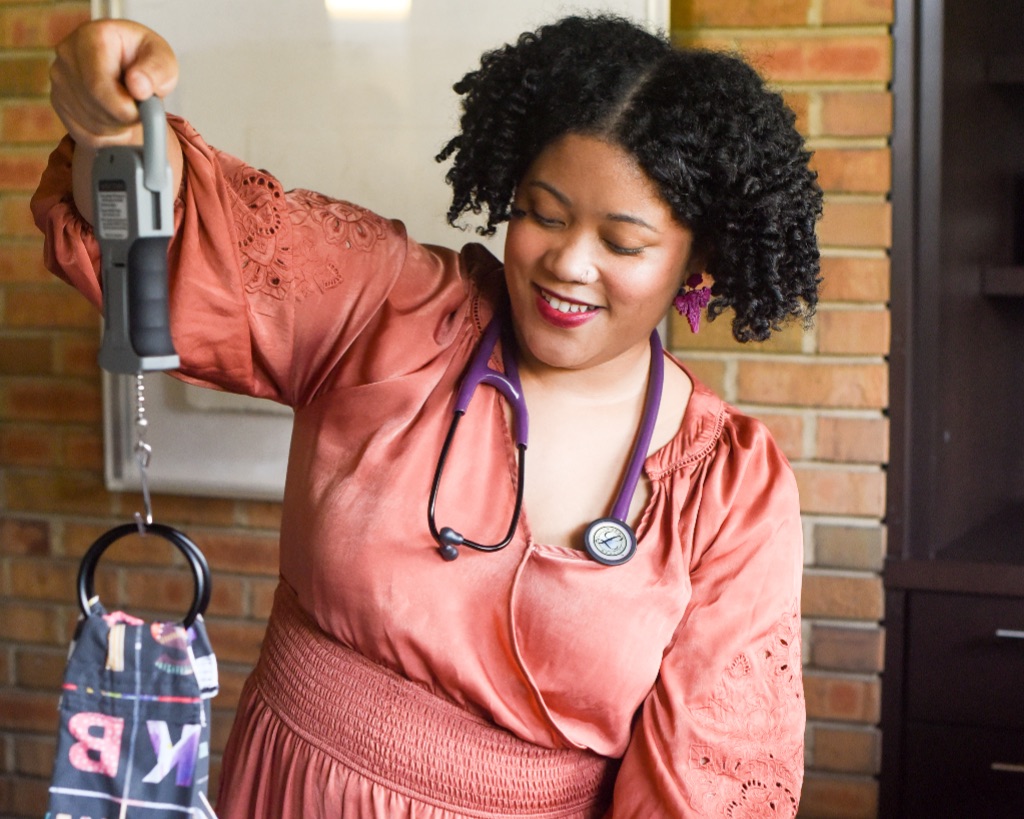Birth is a unique experience for everyone and there are so many ways of bringing a baby into the world. BIPOC for Better Birth is a non-profit established last year in Champaign-Urbana that supports birthing people throughout their pregnancy journey by training doulas and growing a community of like-minded people that can provide support. I met with one of the co-founders, Isis Rose, to talk about the joys and struggles of being a doula and (soon-to-be) midwife. At one point in our conversation Rose says, “I know the value of what I’m doing” and, to me, that value is the space she is carving out for others. A space that allows people to connect and feel supported by creating a safe place that might not have been there otherwise.
Editor’s Note: Any information provided is not a substitute for the consultation and/or medical treatment of your doctor or healthcare provider.
This interview has been edited for length and clarity.
Smile Politely: What anchors you to this place?
Isis Rose: My family — my husband and my kids. My husband finished his PhD [at the University of Illinois]. And within a month, his department asked him to teach, so he got a job working in the same department he graduated from. Then I became pregnant with my first child that same year, and we had just bought a house. I knew for at least a couple of years, we weren’t going anywhere. But you know, the more we thought about the pros and cons of living here and talking to other people with kids, we realized it’s a nice place to raise a family, and we enjoy being in a small town. It is a pretty transient community, so I’ve had to make new friends every year as I get further from having been connected to the University. I believe that there’s a huge opportunity here to improve birth for families and that’s been my mission since I became obsessed with birth in 2016.
SP: Did that start with your own birth experiences?
Rose: It started with my graduate student experience. I was pursuing a PhD in socio-cultural anthropology with a minor in gender studies. My dissertation project was focusing on doulas and birth workers in New Orleans. Since it was an ethnographic research project, I decided to become a trained doula and I completed my training in 2016. This was before I was married and before we had a family. Birth was intriguing to me, because of how interdisciplinary the topic is, in general, but also there are so many implications for birth. How a person gives birth will follow them for the rest of their life — how they were treated, what their experience was like. I had this realization [in 2016] right before everyone became well versed in the maternal mortality crisis, and racial disparities in maternal health. Then 2017 there was a journalistic explosion of the topic and since then everyone has become more aware of the issues that exist.
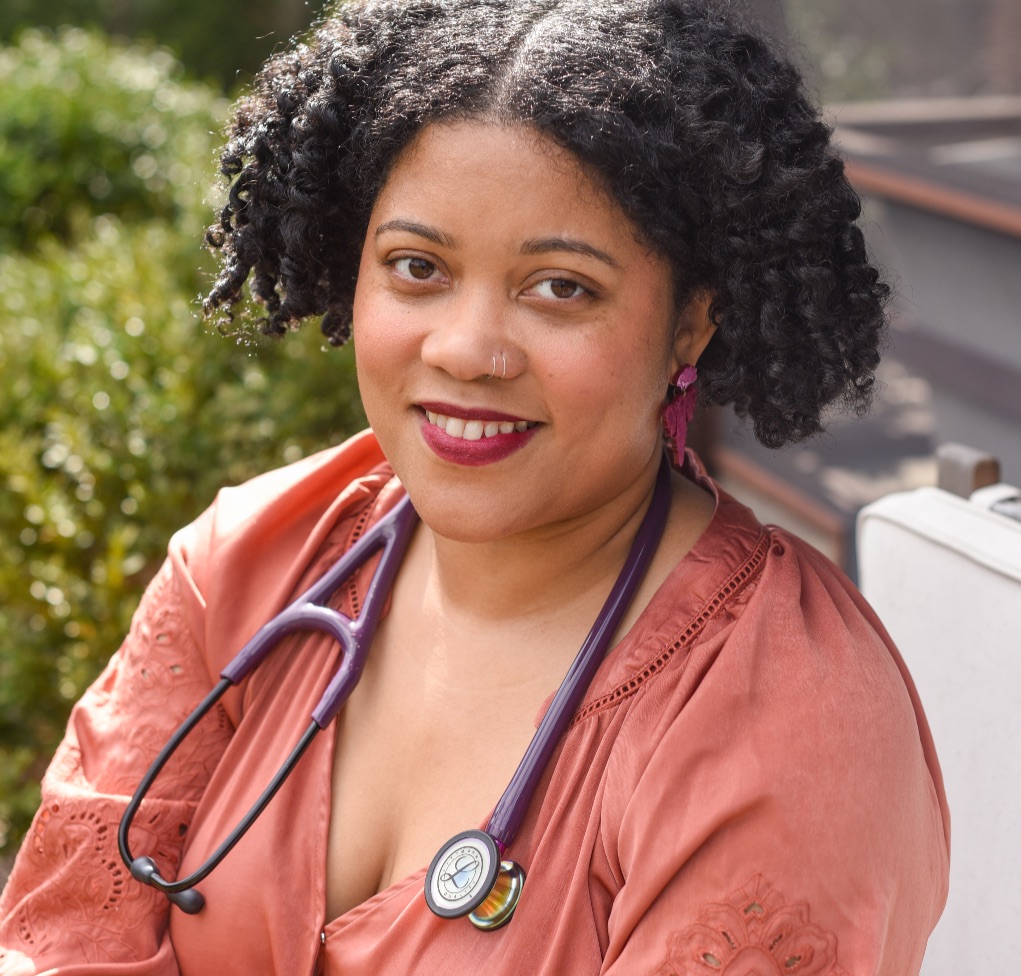
SP: Can you talk a little bit more about the health disparities piece and how BIPOC for Better Birth fits into it?
Rose: As a 26-year-old grad student, and someone who prided themselves on being an intellectual and knowing things, I realized I actually didn’t know the first thing about birth or being pregnant. And, how was I — a person of childbearing age— completely in the dark about all of this? That was what was intriguing to me. Once I became engaged to someone who wanted to have kids, eventually I thought, “I guess this is going to be relevant to me fairly soon.” About a year later I became pregnant for the first time. Simultaneously, I’m having conversations with people who understand this topic very intimately and how they pursued becoming a doula because of their own birth trauma, and wanting to not only heal, as a part of that work, but also help other people to have more positive birthing experiences. That’s what really motivated me to keep going with the topic and to see if I could not fall victim to the medicalized birthing system that we have in the country. Knowing more about pregnancy and birth is what led me to look for a midwife and wanting to have a home birth. And, with a midwife, my daughter was born at home in 2018.
SP: What are some of the benefits to having a doula or midwife be a part of your birth experience?
Rose: It’s a completely different care model. Sometimes people mix up the two roles because both doulas and midwives fall under the midwifery model of care. The midwifery model of care says that birth is a normal life event and so we should allow normal physiology to unfold and minimize the number of interventions and things we do to people while they’re in labor. Doulas are like the birth cheerleaders. They provide information and emotional support and physical support. They are the ones massaging people’s lower back and hips during birth. Studies have shown that having a doula can increase comfort and labor, shortened labor, lead to fewer cesarean sections, and fewer inductions.
Midwives also fall under the midwifery model. They are more the medical provider that is responsible for the health of the baby and the mother or birthing person. They minimize intervention, so they aren’t necessarily going to schedule you for an induction at 39 weeks; they’re going to want to allow your body to go as long as it will. Most midwives won’t work with you after 42 weeks, but allow you to be pregnant for as long as possible before introducing any interventions unless medically indicated. It can be beneficial because midwives are not trained surgeons. They’re people who understand normal physiology, understand normal birth, and will do their part to manage pregnancies and birth so that it’s low risk and babies can be born vaginally.
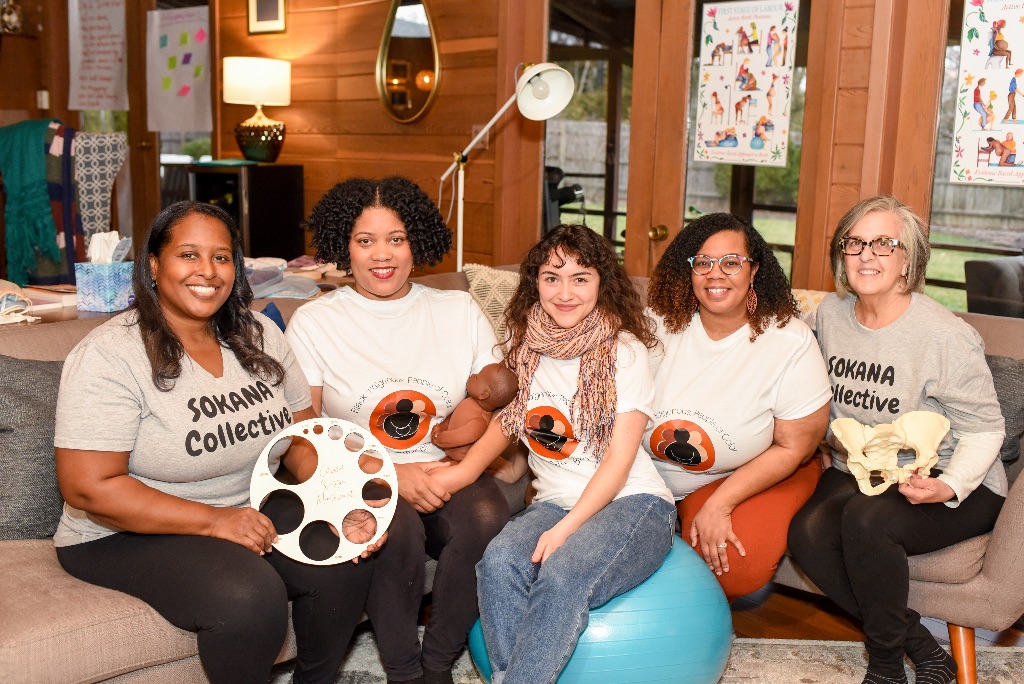
SP: Can you tell me about your organization BIPOC for Better Birth?
Rose: We became an official 501(c)(3) nonprofit in September 2022. I met a woman named Victoria Baez. She’s one of the cofounders of BIPOC for Better Birth. And she saw the work I was doing in the community as a doula. She helped me put together my very first Black breastfeeding week and showed up as a volunteer So we decided that we wanted to have something here in the community to support birth. And then we brought my friend Michelle into the mix. I met Michelle because she saw those photos from Black breastfeeding week. She and Victoria are also both visual artists, so we initially started out wanting to do more arts and storytelling, and then we decided to train more doulas. So essentially, our purpose is to grow the number of BIPOC for Better Birth professionals in this area because as I transition away from doula work and move into midwifery, I know that I can’t continue to take all the clients in this area. There aren’t that many Black doulas in this area and as much as I want to serve people in that capacity, I think that families deserve more.
As I become a midwife, I also want to have a nice group of experienced people who I can tap to be birth assistants and help me with my midwifery endeavor. We also came together, not just because we want more doulas and birth workers, but because there aren’t a lot of places or spaces where people of color congregate around birth-related matters. Breastfeeding, for example — where are the community breastfeeding support groups? And where are the groups for people who have kids three and under? Where are the childbirth education classes, specifically, that talk about racial health disparities? There are not a lot of safe spaces for people of color to congregate and talk about these issues. We want to have more birth workers, have more community awareness events, like our Black breastfeeding week event. We just want to attract more people to be a part of these discussions and think critically about how we, as consumers, [can] demand better care. And how do we make sure that we feel supported during the vulnerable time that is the entire childbearing years and beyond?
SP: What do you see as the future of BIPOC for Better Birth?
Rose: Ideally we would have more doula trainings. We just had our very first doula cohort in March 2023. We trained seven new, full-spectrum doulas — not just for labor and birth support, but also prenatal support and postpartum support. We also focused on birth justice, so people understand not only racial health disparities, but also why it’s important to use inclusive language and support all birthing people, especially people from marginalized groups. Ideally, we would have a board. We’re working on just growing the organization so that it’s sustainable. We need funding, without funding and grant support, or even just very deep pocketed individual donors, it’s hard to sustain work.
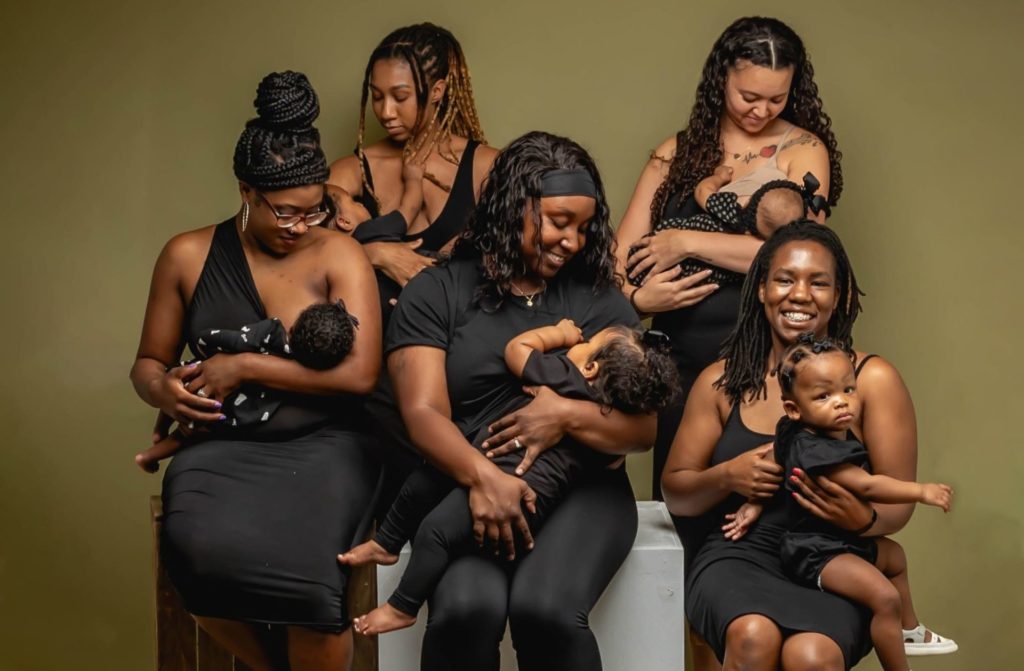
SP: What do you think of when you think of a thriving birthing community?
Rose: I believe that one aspect of a thriving birth community looks like fully integrated midwifery. There are other countries where midwives are their primary birth attendants. Integrating community midwives or traditional birth attendants, CPMs, and people that have expertise outside of the hospital, that’s a major component of a thriving birth community. More birthing options. Right now, we only have one birth center that serves all of these different small towns and it’s in Bloomington, which is an hour away. Having a thriving birth community looks like having more midwives who do home births.
A thriving birth community also looks like peer-led, freestanding breastfeeding clinics and places where people can get lactation support outside of the hospital. There are great parent, mother, and baby resources in general that exist in this community, but [many of them] are income eligible: you have to make a certain amount of money or not, in order to participate. More inclusive peer-led community led programs could lead to all people getting support, regardless of income.
SP: As a person of color, but also because doulas and midwives are not the most mainstream, what are some of the barriers that you face as you build a brand?
Rose: People have been responding well to the organization itself. When we first put out the call that we wanted to train doulas, we got over 20 applications for people who wanted to participate. Unfortunately, we can only train seven or eight people, because that was the funding we had available. For us, it’s about needing money so that we can get paid for our work, and maybe even hire a grant writer because we’re all pressed for time. I do think that people see the value in doulas, midwives, than other birth professionals because they themselves found it lacking in their own birth experiences.
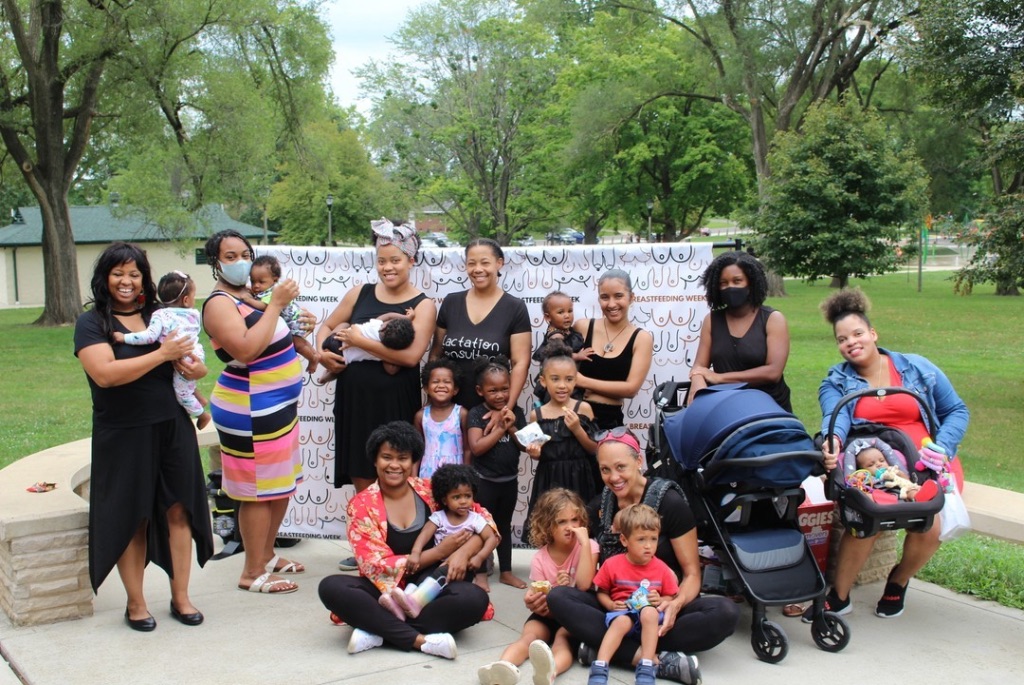
SP: What are some of the challenges of being a doula or midwife?
Rose: Being a student midwife is extremely expensive, and I make very little money. Officially, I’ve been a student since 2022. Because I don’t have a nursing background, it is difficult for me to navigate being a student because CPM students don’t get paid for the births they attend. And if they do, it’s a very small amount of money. That’s a structural issue within the apprenticeship model. I would like to have more conversations about what it means to support community midwives and community birth in general.
SP: What’s the best part of being a part of someone’s pregnancy and birth journey?
Rose: You know, nobody can control birth, right? A doula can’t necessarily change the outcome of somebody’s birth or pregnancy. A midwife can’t necessarily change an outcome. I think the important thing is that people feel seen, they feel heard, they feel supported. The point [of a doula] is not to take up space, but to hold space for a family to make their own decision so that they can feel good about how their birth happened. I’ve learned that it’s not necessarily the outcome of the person’s birth, but the experience of their birth that truly matters. I’ve seen really empowered cesarean sections and I’ve seen really empowered vaginal births. I don’t think there’s any one correct way to give birth. I think there is a correct way to support somebody while they’re birthing. I feel really good about my capacity to support people in their vulnerable time. And I think that every family deserves that, which is why we want to make our support more accessible to people who really want it, without the barriers.
SP: What’s your favorite part of the whole experience?
Rose: My favorite part is bringing a postpartum meal to my clients. I always bring something warm and easy to digest. Something that’s nourishing, nutrient dense, and with some veggies in it. Food is really healing. People often forget about the mother, especially when the baby is born. There’s all this excitement around the baby, so I am always very intentional about making it about the mother or the person who just gave birth. They’re the ones who still need a lot of care, because as long as that person is taken care of, the baby is taken care of.








